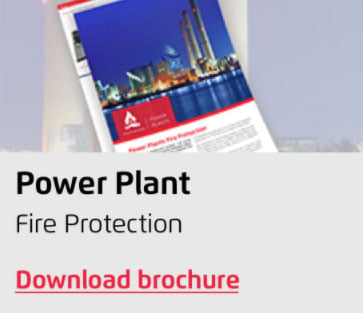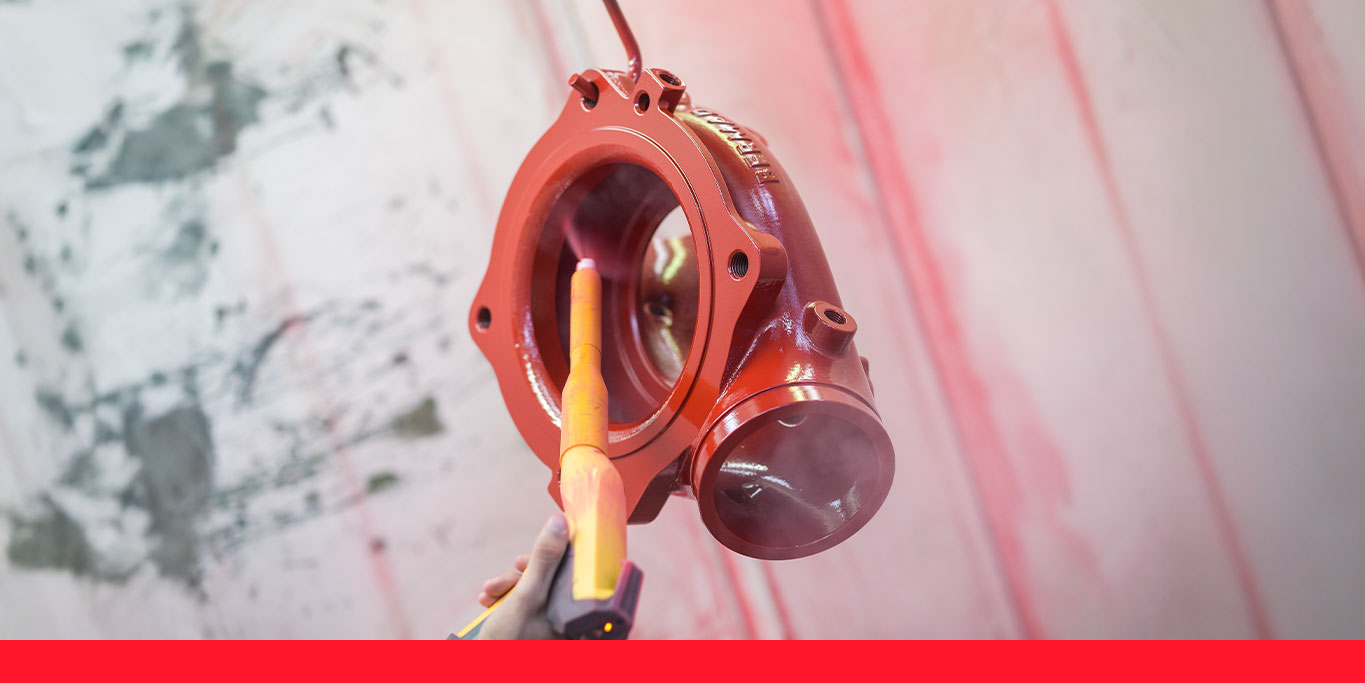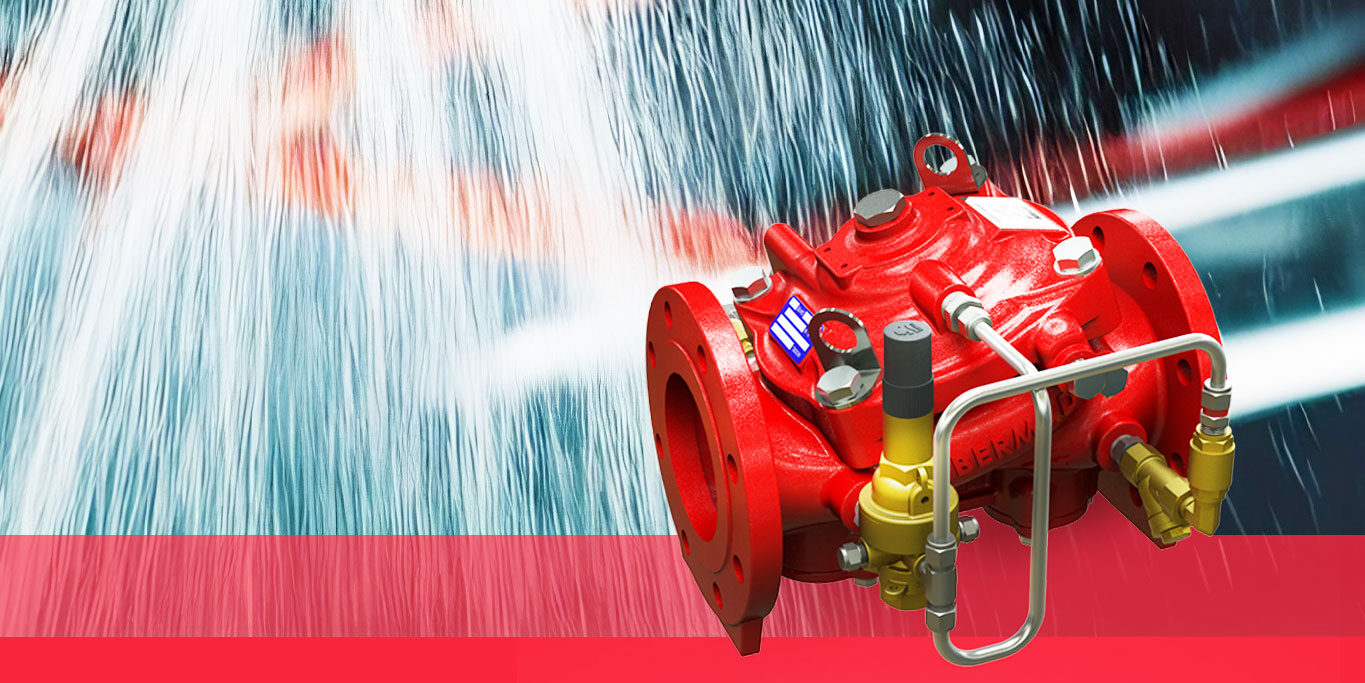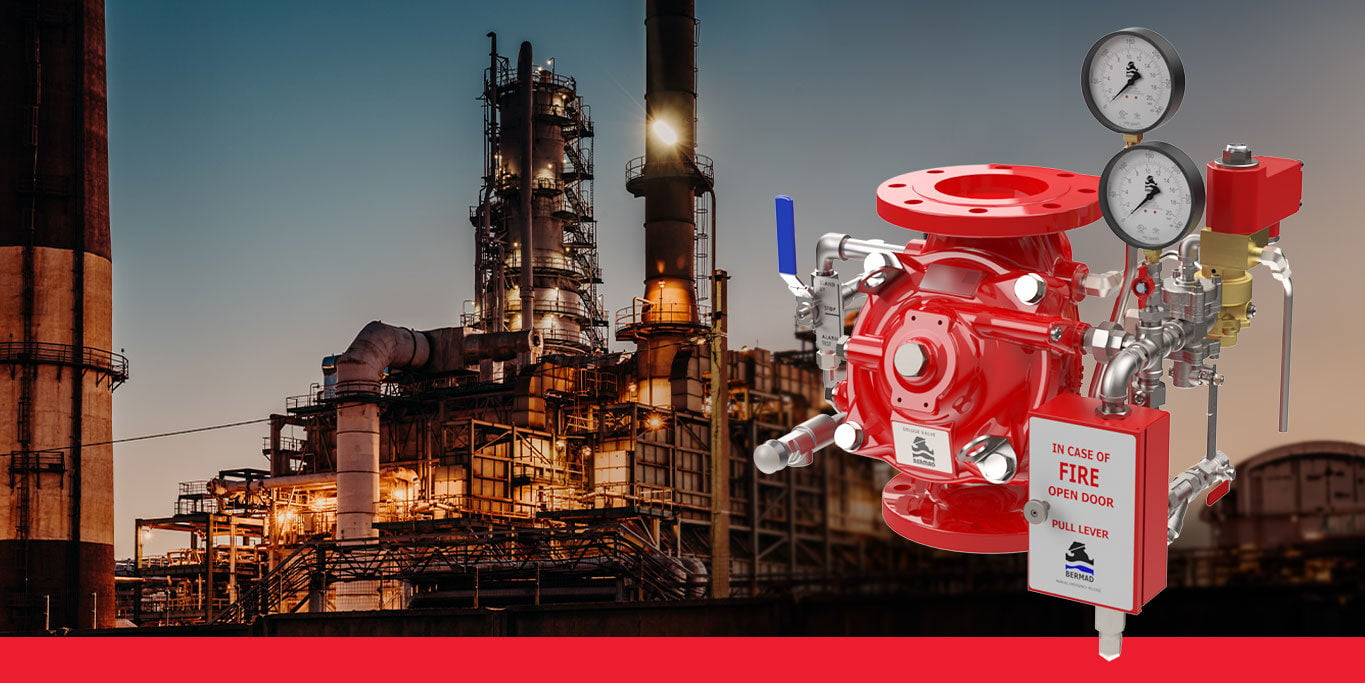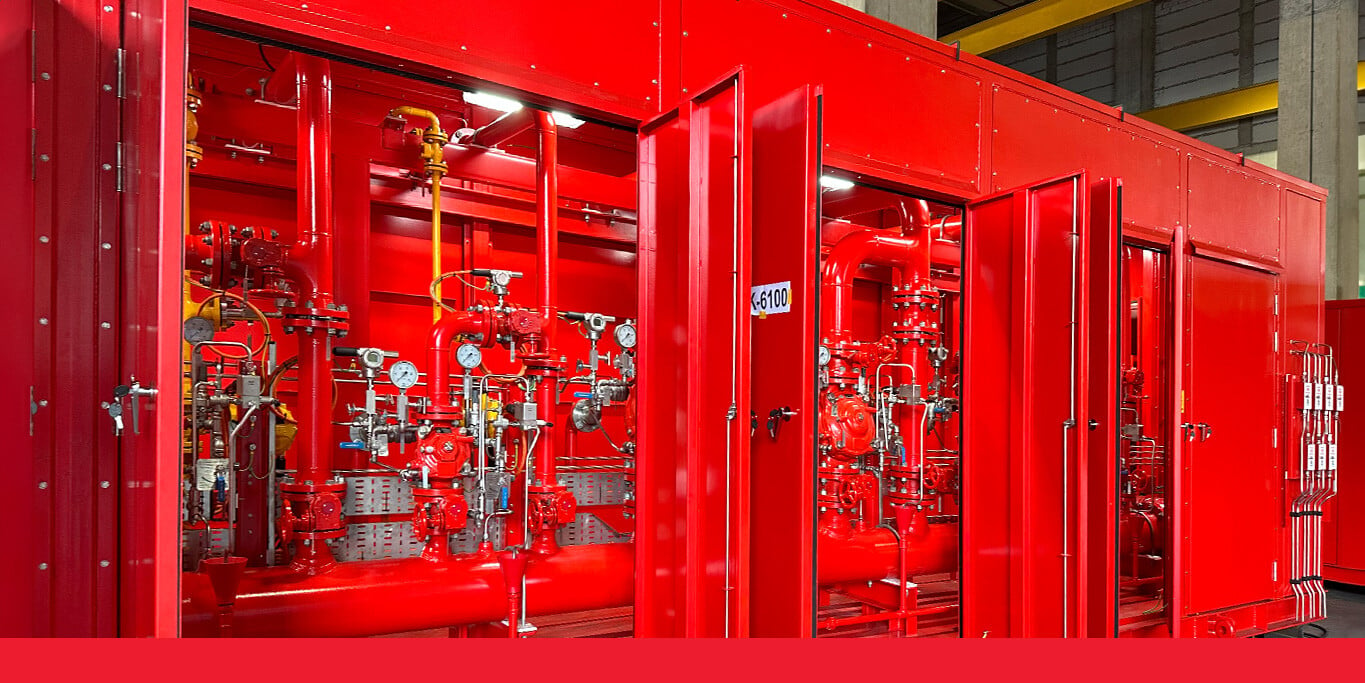The American Petroleum Institute (API) standards are widely used safety and quality specifications for the Oil & Gas industry. While a number of their standards apply to industrial process valves, API 598 in particular governs valve inspection and testing, including testing for valves with a pressure rating of ANSI 1500 or higher.
API 598 details require testing procedures for a number of valve types, including:
- Gate valves
- Globe valves
- Plug valves
- Check valves
- Floating ball valves
- Butterfly valves
These types of valves all include a mechanism that’s assembled of mechanical moving parts. According to the standard, each of these valve types are subject to a number of tests, including a high pressure closure test, low pressure closure test, shell test, and backseat test.
BERMAD Deluge Valves and API 598 Compliance
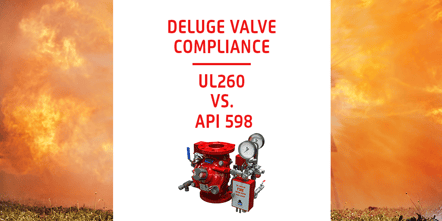
We are often asked whether our FP-400 series deluge valves comply with API 598.
To respond to that question, it is necessary to first address the fact that the FP-400 differs from the majority of those included in the API 598 standard.
The deluge valve is a hydraulically actuated globe valve, which is considered to be a safety valve. The biggest advantage of a FP-400 series deluge valve as a safety valve is that it does not have mechanical moving parts. The only moving part in one of these valves is its flexible, single-piece elastomeric diaphragm. In the case of a fire event there is no complicated mechanism in the valve that can get stuck and fail to react.
The design guidelines we follow are converted from the UL 260 standard, which takes into consideration all the requirements for a fire safety valve to ensure high reliability.
The following chart explains the differences between the two standards:
|
Subject |
API 598 |
UL 260 |
|
Scope of test |
agreement between the purchaser and the valve manufacturer |
According to standard |
|
Valves types |
Mechanical assembled (gate, globe, plug, check, floating ball & butterfly) |
Hydraulic diaphragm |
|
Pressure class |
even more than #1500 |
Up to PN 25 |
|
Back seat pressure test |
Yes |
Not applicable for hydraulic diaphragm valve |
|
Test fluid |
Air, inert gas, kerosene, water, or a non- corrosive liquid with a viscosity not higher than that of water. Note: usage of pneumatic to test only 110% of the maximum allowable pressure |
Water |
|
Pressure (minimum) |
#150 @ 26 bar |
32 bar |
|
#300 @ 66 bar |
50 bar |
|
|
Duration |
≥2" @ 15 sec |
60 sec |
|
2.5" – 6" @ 60 sec |
||
|
8" – 12" @ 120 sec |
||
|
Test fluid |
Air, inert gas, kerosene, water, or a non- corrosive liquid with a viscosity not higher than that of water |
Water |
|
Pressure (minimum) |
#150 @ 17.6 bar |
#150 @ 16 bar |
|
#300 @ 27.5 bar |
#300 @ 25 bar |
|
|
Duration |
≥2" @ 15 sec |
180 sec |
|
2.5" – 6" @ 60 sec |
||
|
8" – 12" @ 120 sec |
||
|
Duty |
Optional |
Must |
|
Test fluid |
Air or inert gas |
Water |
|
Pressure |
4-7 bar |
1.72-6.9 bar |
|
Duration |
≥2" @ 15 sec |
180 sec |
|
2.5" – 6" @ 60 sec |
||
|
8" – 12" @ 120 sec |
API 598 Deluge Valve Compliance Options
As you can see, there are a few significant differences between the two standards. In many categories the UL 260 standard is actually more stringent than API 598. However, the two are not identical.
Fortunately, API 598 allows the customer and manufacturer to come to an agreement about the scope of the tests:
API Std 598 supplements the API standards that reference it, but it may also be applied to other types of valves by agreement between the purchaser and the valve manufacturer.
For customers who require compliance with API 598, BERMAD is happy to discuss options for compliance, including the provision of a certificate of compliance as needed. It is, however, important to recognize that the FP-400 series deluge valve is primarily a safety valve and we will always manufacture it to be compliant with the UL 260 standard as well.
To learn more about how BERMAD products can meet your fire protection compliance requirements, click here to contact a BERMAD fire protection representative in your region. 


